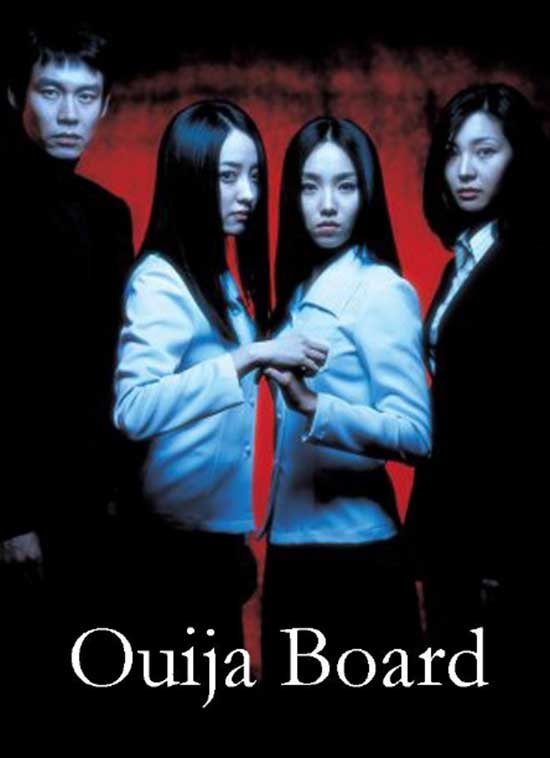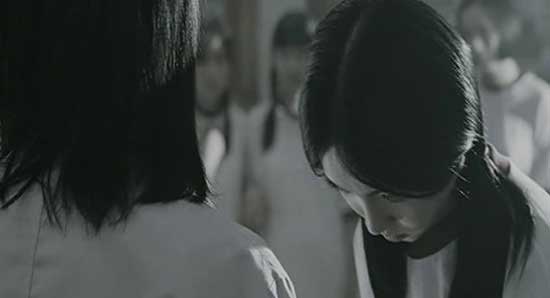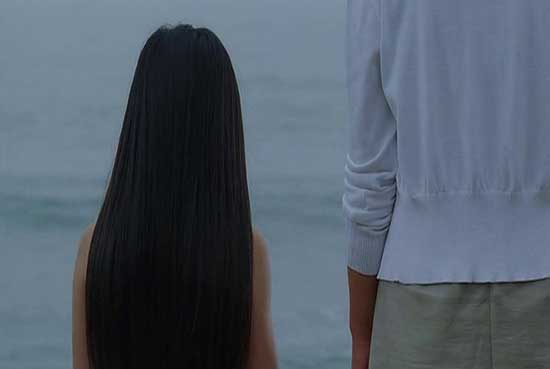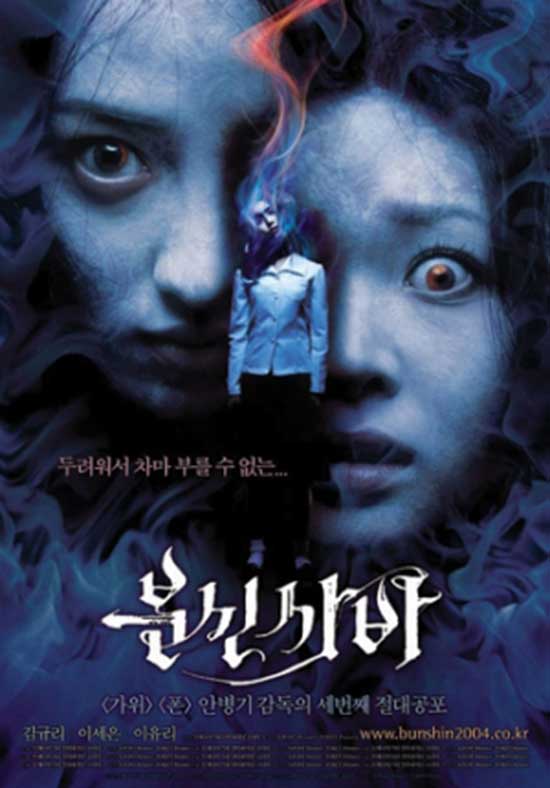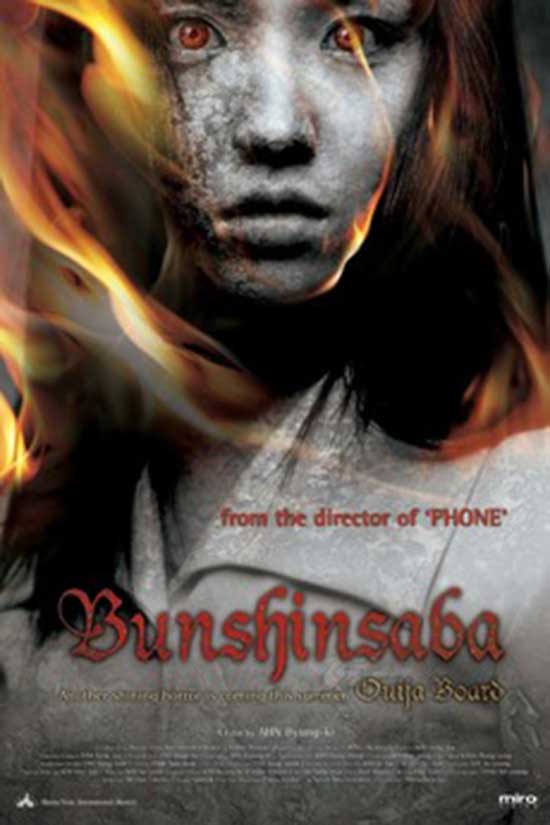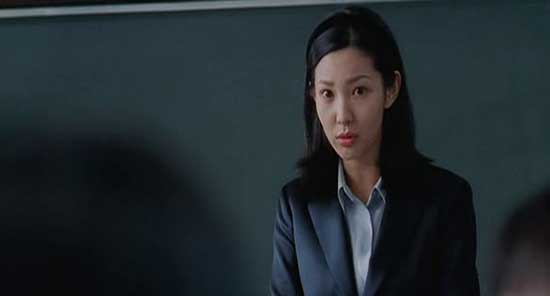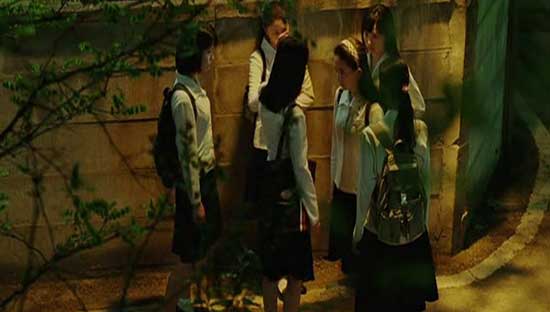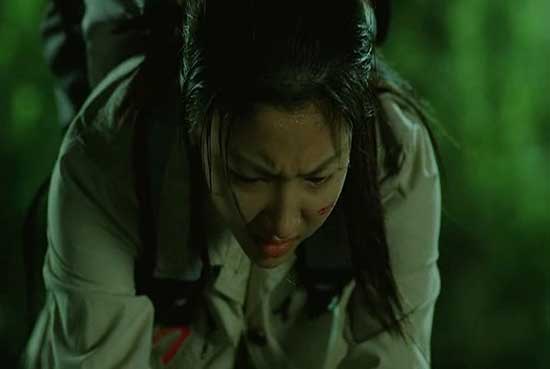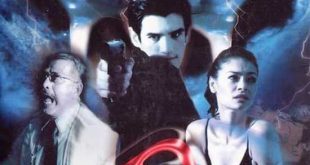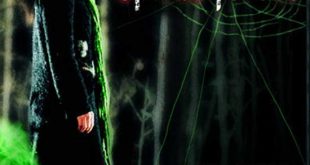SYNOPSIS:
Yu-jin and her blind mother move to a small village from Seoul. On her first day at the new school, Yu-jin gets picked on by her classmates. Along with other victims of hatred, Yu-jin puts a curse on the four girls tormenting them through a Ouija Board. On her second day at school, one of the spellbound bursts into flames and dies just as she sits down where Yu-jin used the board. The next day, another victim burns to death, and now the school is enclosed by horror.
REVIEW:
Directed by Byeong-ki Ahn, Quija Board is a South Korean ghost horror from 2004. Many western fans of Korean horror will probably be familiar with some of Ahn’s earlier work, such as the 2002 horror thriller Phone. As a fan of the formerly mentioned film, I was quite eager to see how Quija Board compared to it. As it happens, the film follows very much along the same lines as its predecessor in theme and atmosphere, but while it has its good points, unfortunately fails to deliver the same intense horror experience.
To start off with, I found the two western titles for the film, “Quija Board” and “Witch Board” to be annoyingly misleading. At no point is a traditional quija board featured in the film and although some invocation of spirits does take place in the very start of the film, the whole thing plays a very minor part in the overall storyline. This kind of laziness is fairly common when Asian film titles get translated and I’m pretty used to seeing it, but a bit more imagination would not go a miss when doing said job.
However, in this case, the reason for the substandard title rendering might lie in the film’s original name: Bunshinsaba. The story starts with three teenage girls, Yoo-jin and her friends, placing a “Bunshinsaba” curse on four bullies tormenting them. What “Bunshinsaba” is exactly, I couldn’t tell you. It is never really elaborated upon and after the first scene, is not really mentioned again. I could not find anything relating to such word online either, so I can only assume it is a made-up word/spirit/demon/curse/what-have-you purely for cinematic purposes.
Anyhow, Bunshinsaba is merely a side note of the story, as instead of a demon, Yoo-Jin ends up conjuring up a ghost of an ex-student, with a much larger plans in mind than simply offing a few bullies. In fact, this particular ghost is so effective at what she does that Yoo-Jins tormentors are killed off within the first half an hour of the film, changing the direction of the story toward something completely different.
Now here is where we get back to the same territory as Phone; an old crime left unpunished and a vengeful spirit back for retribution. Not a bad twist for a film I was expecting to be simply about some school girls out for revenge. Unfortunately, this ghostly curveball does not quite hold up as well as all the twist and turns of Phone. Instead the plot feels somewhat unoriginal and even though I wanted to enjoy the unrevealing murder mystery, I found myself haunted by the feeling that I had seen the same story before.
As a matter of fact, lack of originality is the Quija Boards biggest fault. This does not only go for the plotline but the scares as well. There are a few eerie moments that took me moderately by surprise, but for the most part the pacing of the ghostly appearances is so predictable that I didn’t find myself jumping even once. The appearance of the ghost also leaves lot to be desired as it is as unimaginative as the rest of it. Having died in particularly nasty manner, there was plenty of room to create outstandingly creepy looking ghost. Instead the filmmakers opted for the tried and tested, black hair-white face combo that will only succeed in scaring you if you have not seen any other Asian horror before.
I do have to give Quija Board some points for some of the deaths in the film. For me personally, setting someone on fire has always been one the most horrific things I can imagine, and this film is certainly not shy with its pyrotechnics. Quite a surprising amount of people actually meet their end in this manner. So much so that by the middle of the film, it almost starts to feel repetitive. There are also a few more surprising death scenes that I did not quite see coming, but nothing overly imaginative or unpredictable and certainly not enough to balance the otherwise uninspired scares.
Overall, I don’t think Quija Board is an entirely hopeless film. Despite it’s lack of originality, it did keep me moderately entertained for the whole 90 minutes of its running time and while I have poked holes in it, I could still recommend it as a single view kind of film. It’s nothing special and probably won’t really stuck in your mind, but not a complete waste of time either. It’s just happens to be one of those kinds of films that you watch once and then completely forget that you’ve done so.
 Horror News | HNN Official Site | Horror Movies,Trailers, Reviews
Horror News | HNN Official Site | Horror Movies,Trailers, Reviews
